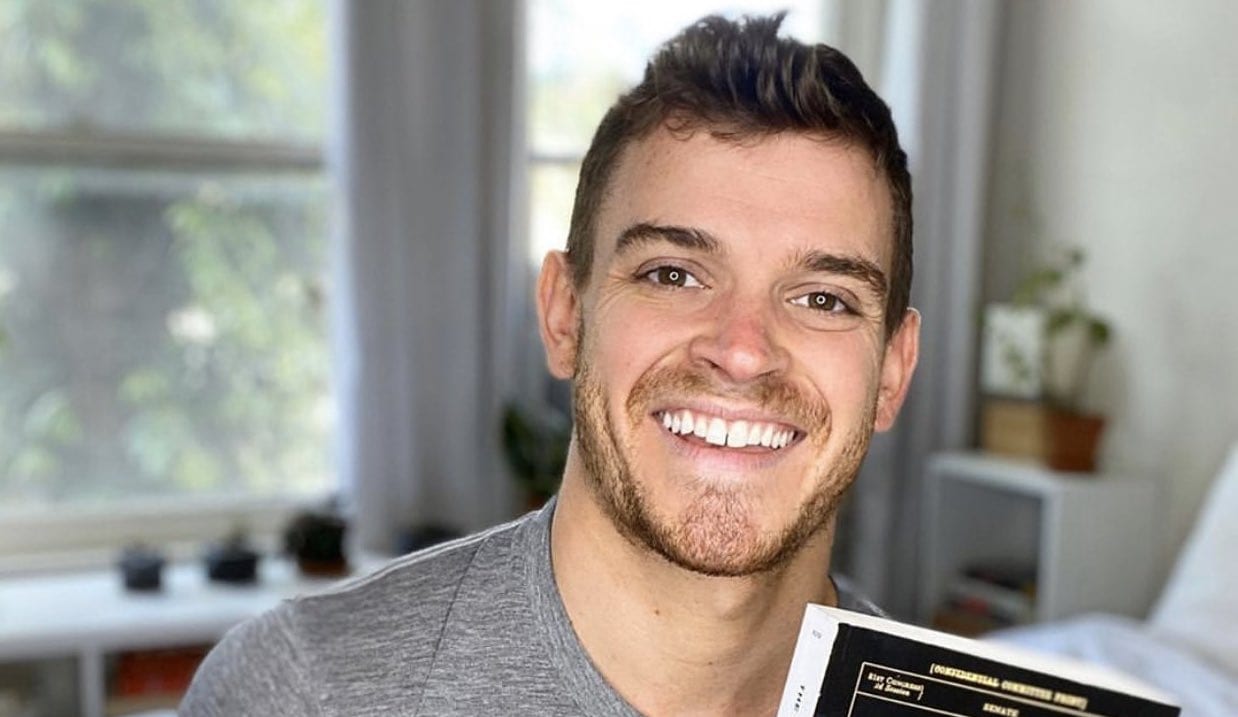The modern LGBTQ2 liberation movement often starts with the story of Stonewall. But historian Eric Cervini’s first book, The Deviant’s War: The Homosexual vs. the United States of America, goes back a generation further to unearth the secret history of gay liberation. The New York Times bestselling book follows mercurial Harvard-trained astronomer Frank Kameny as he loses a plum government job following the revelation of his arrest for cruising in a public bathroom. Instead, he gains a career as an activist. Cervini wrote and researched the book over a seven-year period, which involved digging to learn about Kameny, his activist group, the Mattachine Society of Washington, and what was then known as the “homophile” movement. Cervini also weaves in the concurrent history and the connections Kameny and his ilk had with freedom movements for Black, lesbian and trans people. The Deviant’s War is a vital new perspective on the roots of gay rights and the clever, complicated, passionate and sometimes frustrating activists behind the charge. Cervini spoke to Xtra from Los Angeles about his new book, the myth of an LGBTQ2 monolith and the biggest surprise his research uncovered.
Early in the book, we learn that after his arrest Frank Kameny never works for the government again, but every so often he’s optimistic that maybe he’ll finally regain his security clearance. Was this meant to portray Kameny as somewhat delusional since the reader knows his ultimate fate?
I think it’s twofold. Part of him being so obsessive—and as you call it, delusional—I think was necessary, right? The fact that he didn’t know it was going to be completely futile to keep fighting was crucial. If Frank knew what we know, then who knows if he would have continued fighting? It was important to understand how much he’d lost at that point, but also to see how much his obsessive, logic-based persona was necessary to do everything he did. For us to know that he’s always going to be failing and that it’s futile makes us appreciate the fact that he’s still going.
In one passage, Kameny says he believes what drives the movement is gay people stepping past their own feelings of inferiority. What do you think was a key driver for the pre-Stonewall activists in your book?
I think the one thing you see throughout the movement, but especially in the beginning stages even after Stonewall—and it’s true for any movement—is that those with the least to lose were the first to fight back.
Credit: Courtesy Macmillan
Frank lost everything, permanently, because he recognized how little he had to lose. He’d spent his entire life working to become an astronomer, and then he lost it. In his mind, to threaten defecting to the Russians or making novel, unprecedented arguments to support his case—there was nothing to lose. He literally couldn’t have fallen any further. To come out and sue the government or picket in front of the White House was very risky; he instantly needed something else to outweigh that. And I think that’s when Frank brought in his own theory of morality and of pride, which needed tools to overcome fear and that feeling of inferiority. I think that’s where that idea of Pride actually came from.
LGBTQ2 people sometimes get painted as a monolith. But your book shows a lot of tensions between groups, like lesbian activists feeling left behind by male-led groups. Has there been more cohesiveness in recent years or is there still tension between different groups within the community?
I think there have always been divisions within the LGBTQ2 community, largely the result of people like us, honestly. Those who have the most privilege and power in society are, even if marginalized in other ways, going to be the ones who take control of a movement.
“With the racial reckoning we’re experiencing in 2020, we’re finally having the conversation of how history has wronged so many groups”
As a result, you leave people behind. That’s why I thought it was so important to tell the stories of people like Sylvia Rivera in the book—to show how it wasn’t just some blip in history, this was part of a much larger phenomenon. This attachment to Kameny’s strategy of respectability had collateral damage. If you’re going to say “we’re just like you, we’re just like straight people,” like Frank did, then the people who are less like straight people are going to be left behind. I think that’s still happening today. With the racial reckoning we’re experiencing in 2020, we’re finally having the conversation of how history has wronged so many groups, and I think that’s one of the silver linings of this year with the [Pride] parades and celebrations being paused. Finally we can re-evaluate to make things more inclusive.
While writing the book, what was a certain topic or historical episode that you learned about that was most surprising to you?
I wrote my master’s dissertation on FBI surveillance of the original Mattachine and Frank’s organization, the Mattachine Society of Washington. I’ll never forget the feeling of first pulling up the declassified FBI file on the Mattachine Society. There was a maximum of a few dozen members of the organization at any given time; there were probably fewer than 100 Mattachine or homophile movement members in the entire country, yet the FBI had a 1,000-page file on them. To see just how obsessed J. Edgar Hoover and the federal bureaucracy were about infiltrating and destroying this tiny movement was eye-opening, because I think it sheds light on the lengths to which those in power will go to destroy dissent.
The activists in your book borrow liberally from Black liberation movements and acknowledge the success of these tactics. Yet there’s no real outreach to actively engage Black LGBTQ people in the homophile movement. From your research, was it due to Frank’s narrow vision, or did race play a large role in this exclusion?
“There were a lot of different factors that resulted in a very white, male-dominated movement”
I think both. It was a lot of different factors that resulted in a very white, male-dominated movement. One thing to keep in mind is that a movement centred around the struggle of federal employees is for people who were able to get into the door in the first place. And so, part of the movement is you had to have the privilege and entitlement in order to make that jump to, “I once had a job, I had a Harvard PhD, I deserve to have this position as a result of all my other privileges and identity. So therefore, I’m going to fight.” I think that’s true, not just for Frank, but for a lot of people in the movement. On top of that, you have to remember it was the gay world of Washington. There were white gay bars and Black gay bars. Frank’s world, as I write in the book, was the “gay white world of Washington.” When he built this movement around him, that’s what the movement began to look like. There were tiny little efforts, really in name only, made in terms of outreach but no real prolonged effort. I think that was one of the significant failures of the pre-Stonewall movement, continuing even today.
What do you think about the wide coverage and success of the book, given how narrow the audience is often considered to be for this sort of story?
It was an uphill battle. It’s like the Lady Gaga quote about how there can be 99 people in the room who don’t believe in you. In the publishing world, I had the one or two people who believed in the book; but there are also 99 others out there who said to my face there wasn’t a market for a book like mine. People laughed in my face when I said I want to put this on the New York Times bestseller list, but I didn’t think there was a reason it wasn’t possible. A big part of why I’ve been so excited about all the coverage and reception wasn’t just because the book was doing well, but because it was proving a point. I wanted other people in my shoes who wanted to write a history book, or queer project of any kind—whether in publishing or Hollywood—to be able to point to an example and say, well, Eric Cervini did it so I’m going to do it. That’s the real victory of all the coverage.
This interview has been edited and condensed.


 Why you can trust Xtra
Why you can trust Xtra


